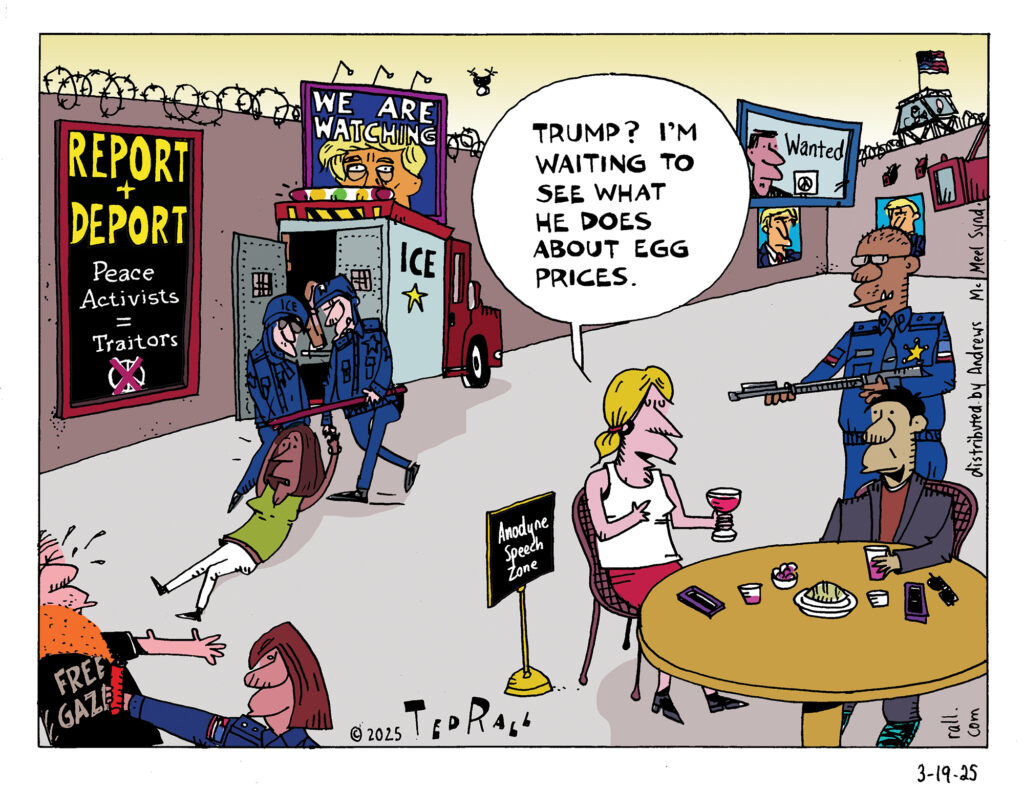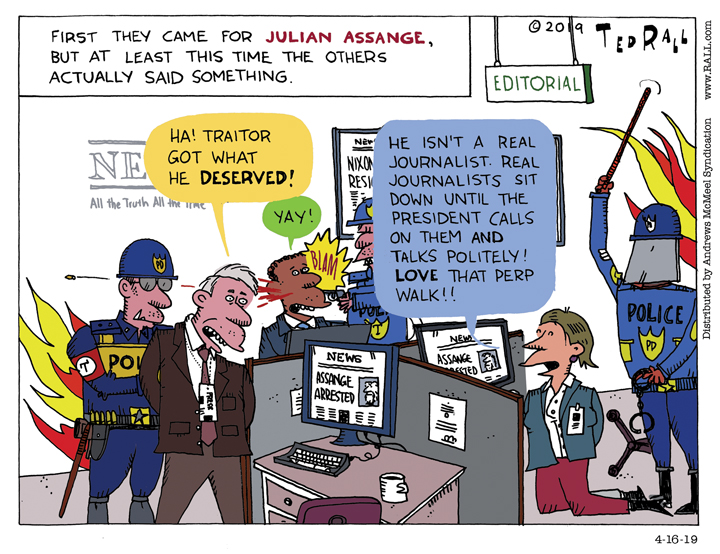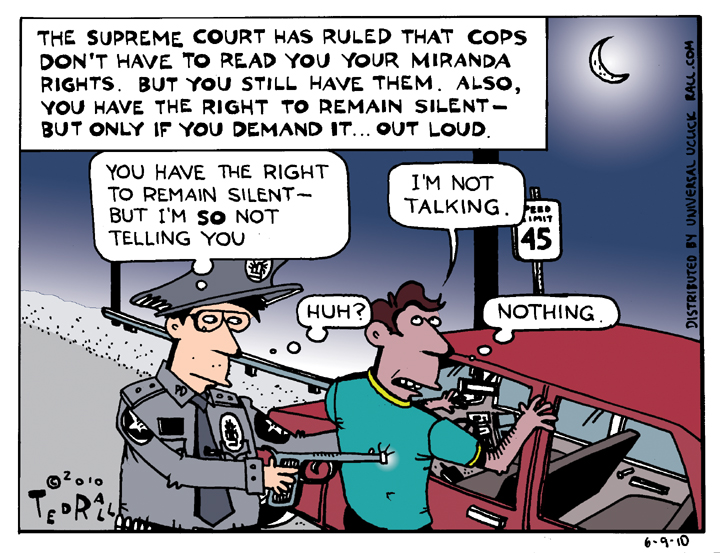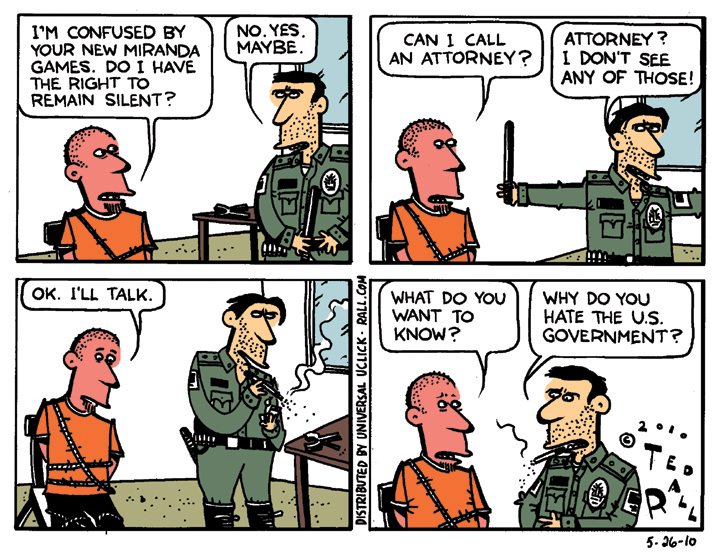Consumers obsess over inflation; like egg prices topping $4; but barely notice a green card holder’s arrest for peacefully criticizing Israel. The contrast is sharp: grocery hikes since 2022 spark loud gripes; while a free-speech crackdown gets muted shrugs. Eggs hit wallets daily; tracked by CPI; the detention feels remote; abstract. Economic woes drown out systemic overreach; showing how personal costs overshadow eroded rights.
DMZ America Podcast #94 (Audio or Video): Is TikTok a Threat? France is Burning! The Non-Arrest of Donald J. Trump
Editorial cartoonists Ted Rall (Left) and Scott Stantis (Right) debate breaking news across the nation on a busy week.
Congress grilled the CEO of the Chinese-owned social-media app TikTok, reminding Ted of the PMRC hearings of the 1980s, another moment when Congress worked hard to appear anti-fun and out of touch. Scott calls China a “threat”; Ted prefers to see them as a “challenge.” What do we have to fear from TikTok, other than becoming even stupider?
France is burning in the wake of President Emmanuel Macron’s sop to the neo-liberal class: raising the national retirement age from 62 to 64. Scott asks Ted, a French citizen, why younger Frenchmen are demonstrating in solidarity with older people they have to support in old age? Ted addresses the fact that pension reform might have been greeted differently from a different, more populist president.
Manhattan DA Alvin Bragg didn’t file charges against Donald Trump last week, but next week might be different. Scott and Ted agree that an arrest will empower the former president. Ted takes a victory lap on calling for Trump wanting a perp walk last week. Scott deplores liberal gloating because it feeds into Trump’s narrative.
Watch the Video Version of the DMZ America Podcast:
DMZ America Podcast Ep 94 Sec 1: Is TikTok a Threat?
DMZ America Podcast Ep 94 Sec 2: France is Burning!
DMZ America Podcast Ep 94 Sec 3: The Non-Arrest of Donald J. Trump
Democrats and Republicans Agree: Better to Lose Than to Shut Up

“When you surround an army,” Sun Tzu counseled in The Art of War, “leave an outlet free. Do not press a desperate foe too hard.” Partisans on both sides of America’s everything-looks-like-a-hammer politics have forgotten this basic tenet of strategy—and are likely to pay for it.
Donald Trump announced that he expects to be arrested in New York and indicted in connection with charges that media reports say are about to be filed by Manhattan District Attorney Alvin Bragg. Democrats greeted the news with characteristic gloating.
“[Trump] cannot hide from his violations of the law, disrespect for our elections and incitements to violence,” tweeted former House Speaker Nancy Pelosi. The New York charges concern the allegation that he misappropriated campaign funds in order to pay hush money to Stormy Daniels, who says she had sex with the former president. They have nothing to do with denying the result of the 2000 election or the January 6th Capitol riot.
Former MSNBC host Keith Olbermann tweeted: “ARREST TRUMP TODAY! ARREST TRUMP TOMORROW! ARREST TRUMP FOREVER!”
“I’ll throw a watch party when it happens,” Alyssa Farah Griffin said on ABC’s The View. “Lock him up! Lock him up!” Joy Behar responded, echoing the anti-Hillary chant at Trump’s rallies.
Schadenfreude is wicked fun, but gleeful Trump-bashers might want to consider the consequences: Grievance-mongering is one of Trump’s main political schticks. Revel in the T-shirt of the presidential mugshot but remember, MAGA nation will use it to rile up the GOP base—and bring back some 2016 Trump voters who became Never Trumpers as well. In a Trump perp walk (I’d advise him to demand one), conservatives will see maddening injustice where liberals see just desserts.
Indeed, even Trump’s primary challengers are coming to his defense. What doesn’t kill Trump makes him stronger; an arrest coupled with liberal gloating thereabout plays into his narrative that he receives unfair and disproportionate opprobrium while swampy mainstream pols get away with murder, hardens his supporters’ resolve, and increases his chances of being restored to power. “If this happens, Trump will be re-elected in a landslide victory,” Elon Musk predicted.
Meanwhile, Republicans are overplaying their hand on abortion.
Pro-lifers have launched a novel legal challenge to FDA authorization of the abortion drug mifepristone in a federal court in Texas, a case that will probably be decided by the U.S. Supreme Court. Wyoming recently banned medication abortion. A South Carolina bill would define abortion as murder punishable by life in prison or capital punishment. Considering that 85% of voters favor legal abortion in all or some circumstances—a record high since 1976—they might ask themselves whether they’ve blown up a bridge too far.
One-third of American women now live in a state where abortion is illegal due to the overturning of Roe v. Wade. Most abortion-ban states have exceptions for rape, incest and the life of mother on their books, but in practice very few exceptions are ever granted. A lawsuit filed by five women in Texas who nearly died because they were denied abortions to which state law said they were entitled highlights that reality.
When widespread demand encounters legal prohibition, people generally resort to a workaround—legally if possible, underground if not. There are roughly a million abortions annually. Medication abortions using mifepristone to block hormones that support pregnancy and misoprostol to empty the uterus accounted for 53% of U.S. pregnancy terminations in 2020, a portion that has almost certainly increased with the spread of telemedicine during the pandemic and the Dobbs decision.
The mifepristone option has served as a socio-political pressure-release valve since Dobbs. Red-state women get still obtain abortions without traveling hundreds of miles. Red-state politicians can pander to pro-life voters, pointing out that abortion is far more difficult to obtain without looking like full-fledged Handmaid’s-Tale despots. The loser has been the pro-choice movement, which lacks the galvanizing effect of a 100% abortion ban.
If SCOTUS overrules the FDA and kills mifepristone, the pressure-release valve gets closed—and not just in the 28 states that currently ban abortion. Medication abortion, the easiest and therefore most common type of abortion, vanishes in all 50 states. In an election year, the mere effort to ban mifepristone may be sufficient to enrage liberal voters. If it succeeds, watch out. Abortion rights aren’t currently a top issue for left-leaning voters, but an actual ban could spur even disgruntled progressives to turn out for Democrats about whom they otherwise might not have felt enthused.
What should the two parties have done instead?
In an ideal world, Democratic prosecutors and investigators would have coordinated their efforts, bypassing novel legal theories like AG Bragg’s that are politically flimsy and unlikely to lead to conviction in favor of rock-solid charges like business fraud and instigating a riot. Now that an indictment appears to be forthcoming, Democrats could have assumed a sober mien, pointing out the sad necessity of having to book a former president like a common criminal. They shouldn’t be jumping up and down like overstimulated infants.
Republicans, on the other hand, should have taken a breather on their fight against abortion. Had they waited a few years to let the new bifurcated legal normal to take hold, the pro-choice movement would have lost momentum as dispirited partisans drifted away having accepted defeat. Eventually, with Americans accustomed to abortion as less legal and rarer, they could have moved forward to ban all forms of abortion nationwide. Slow and steady, the same way economic conservatism was built up from the grass roots over decades following Goldwater’s 1964 rout, might have won this race.
(Ted Rall (Twitter: @tedrall), the political cartoonist, columnist and graphic novelist, co-hosts the left-vs-right DMZ America podcast with fellow cartoonist Scott Stantis. You can support Ted’s hard-hitting political cartoons and columns and see his work first by sponsoring his work on Patreon.)
DMZ America Podcast #93: Trump Says He’s About to Be Arrested
Former President Donald Trump announced that he expects to be arrested this Tuesday by the Manhattan district attorney in connection with charges related to misappropriation of campaign funds to pay hush money to porn star stormy Daniels, who alleges that she had an affair with him. In this special edition of the DMZ America podcast in which left-leaning editorial cartoonist Ted Rall debates politics with right-leaning editorial cartoonist Scott Stantis, they go over the social, legal and political implications of what appears to be an imminent indictment, the first of its kind against a former President of the United States. Is political violence inevitable? Will there be an uprising near the New York courthouse similar to January 6? Will Trump-weary republicans close ranks behind the former president? Does this hurt him or help him in his election campaign for 2024? Spoiler alert: Democrats should be careful what they have long wished for.
You can also watch the Video Version by clicking=> here
If There’s a Warrant for Your Arrest, the Government Should Have to Tell You

There ought to be a law.
I read about Eric Barrier, half of the classic rap duo Eric B. and Rakim, and how he recently wound up in jail. The story is interesting not because it’s unusual but because it’s typical.
Without getting into the weeds of his original 2002 offense because that would distract from my point here, Barrier’s lawyer told him to skip his sentencing hearing because his presence wasn’t required.
Wrong. Unbeknownst to Barrier, New Jersey authorities had issued a warrant for his arrest. “More than 17 years passed before he first learned of the warrant, from law enforcement authorities in Vermont when he came into the United States from Canada last month,” according to The New York Times. In October Barrier presented himself to court officials, who promptly arrested him. He was freed on bail November 12. Weeks in prison! I’m 99% sure he would have addressed the issue if he’d known about it.
This is a common problem. Every day, courts across the United States issue thousands of arrest warrants for crimes ranging from serious felonies to offenses as minor as failing to pay a parking ticket, jaywalking or not renewing a dog license. Millions of Americans have outstanding warrants. In 2016, there were 1.5 million warrants for New Yorkers—one out of six residents of the city.
The vast majority have no idea they’re wanted.
“Most jurisdictions around the nation are doing nothing with warrants like this. Nothing,” said Professor David Kennedy of John Jay College of Criminal Justice. Criminals and innocent citizens alike conduct their daily routines oblivious of the sword of Damocles hanging over their heads until they get pulled over for a traffic stop or otherwise come into contact with a police officer. The computer spits out their name, handcuffs get slapped on and off they go, sucked into the system.
When it’s a rapist or a murderer, that’s great. But does a system that only snags rapists and murderers who don’t make full stops and drive over the speed limit make sense?
It’s not so great to arrest and process people who committed minor offenses, many of whom would have happily paid their old tickets if the state didn’t keep them ignorant about their legal peril.
Many friends I talked to about this subject told me that they or someone they knew had been arrested on a warrant they’d never heard of. It’s hardly surprising. About 7 million Americans are driving around with their licenses suspended because municipalities believe they owe money for unpaid parking tickets or moving violations. Many of them have no idea they are a single traffic stop away from a seriously bad day.
I got a speeding ticket and paid the fine, on time. But the municipality didn’t credit me. I had my canceled check so I assumed I was in the clear. Later, when I was pulled over for something different, the officer informed me that my license had been pulled over the “unpaid” ticket—the DMV never notified me of the suspension, and no, I hadn’t moved—so the cop arrested me and took me to the station for an hour or two. Setting things straight ultimately cost me thousands of dollars in attorney fees.
Warrants and license suspensions can be life-changing events. What if you get nabbed on your way to pick up your child from school and they take away your phone while you’re being booked? Given how disruptive warrants are, not just to civilians but also to law enforcement officers who should be chasing actual criminals, there ought to be a federal law mandating that states and local municipalities send notices via the mail to the last or most likely address for people wanted for arrest or whose driving privileges have been suspended. Notices should be mailed repeatedly, at least annually, to give people a chance to make things right.
Police departments and other government agencies have massive comprehensive universal databases, some with facial recognition and DNA, that make it possible for them to find almost anyone in the United States if they really want to.
So why don’t issuers of arrest warrants tap into these resources? The cynic in me has an answer: governments make millions of dollars by dunning scofflaws with additional fines, fees and bail. That’s a revenue stream that would vanish if most people knew they owed cash and where to send it in to settle their debt.
If Congress acts, life will get a little easier. More importantly, it will restore a bit of the faith Americans have lost in our government and public officials.
(Ted Rall (Twitter: @tedrall), the political cartoonist, columnist and graphic novelist, is the author of “Francis: The People’s Pope.” You can support Ted’s hard-hitting political cartoons and columns and see his work first by sponsoring his work on Patreon.)
First They Came for Julian Assange But I Said Something Stupid
WikiLeaks editor Julian Assange was evicted from the Ecuadorian embassy in London and tossed into the hands of British security forces who plan to extradite him to the United States. Amazingly, many American journalists thought this was a very good idea and couldn’t possibly see how they might be next.
SYNDICATED COLUMN: You’ll Get Arrested Someday. Will You Survive?
Are you male? The odds say you’ll be arrested by the police at least once.
What happens to Americans after the cops slap on the cuffs, therefore, is not an intellectual exercise, or a matter of liberal guilt. It doesn’t just happen to other people.
You. It could happen to you.
It’s happened to me twice in the United States, and more times than I can count in foreign dictatorships. (In Third World countries, it’s usually corrupt cops shaking you down for a bribe.) On each occasion, I was thunderstruck by an overwhelming sense of helplessness.
No one knew where I was.
I was trapped. Think this is a democracy? Think again. Whether you’re in Turkmenistan or the United States, victims of arrest are every bit as “disappeared” as if they were living under Orwell’s dystopian Big Brother.
Your family doesn’t know where you are.
You don’t show up to work — so you might lose your job.
If you need medication to live, you may die because the cops won’t give it to you.
When I was arrested, the policemen could have done anything they wanted to me — beat me up, rape me, even murder me — and get away with it. They didn’t. But they could.
That’s not a good feeling.
It’s certainly not a feeling you should have to experience for trivial offenses. (My case #1: arrested for possession of marijuana. Not mine. My friend’s. Because he was in the same car as me when I got pulled over for forgetting to turn on my headlights at night. My case #2: pulled over for speeding. Arrested for a suspended license. Which had been suspended in error.)
This kind of thing should not be a death sentence. A Justice Department study found that more than 2,000 criminal suspects died in police custody over a three-year period. Fifty-five percent were ruled as homicides by police officers.
Christopher J. Mumola, who authored the study, notes that most people make it out physically unharmed. “Keep in mind we have 2,000 deaths out of almost 40 million arrests over three years, so that tells you by their nature they are very unusual cases,” said Mumola.
But that’s still too many. And jail is still a gratuitously terrible experience. Guaranteed constitutional rights — to legal representation, a speedy trial and to communicate with the outside world –are routinely denied. Detectives bully and harangue suspects past the limit of human endurance, frequently extracting false confessions from innocent men and women. Basic needs, including access to medication, are often ignored.
Some conservatives will counter that the police shouldn’t coddle suspects. That if you do the crime, be prepared to do the time. But that’s precisely the point: under U.S. law, suspects haven’t done any crime. Until a judge or jury delivers a guilty verdict, arrestees are innocent under the law.
The Miranda decision — the last major reform that improved life for those who get arrested — is a half-century old. It’s time to update the rules to bring the experience of getting arrested in line with the high-flying rhetoric of human rights enshrined under U.S. law and with common decency.
You have the right to communicate.
Or you should. In New York City, for example, suspects being processed through Central Booking are supposed to be allowed to place three local phone calls for free. In New York and most other municipalities, this right is routinely delayed.
“Disappearing” people is unworthy of a modern nation-state. It’s also dangerous. What happens to children waiting for their parents to pick them up after school when they don’t show up?
“Prepare yourself and your family in case you are arrested. Memorize the phone numbers of your family and your lawyer,” advises the ACLU. But in the age of the cellphone, many people don’t know important phone numbers by heart.
Suspects should be permitted to keep their cellphones, and use them as much as they want, while waiting to be indicted or released.
You have the right to your meds.
Cops are extraordinarily cavalier about the health of the people they arrest. Members of Occupy Wall Street arrested in 2011 reported that jail guards in Manhattan routinely jeopardized their health. “At one point,” wrote Dave Korn, “the cops wheeled out a stretcher holding one of our girls; she was lying motionless, oxygen tubes connected to her face. She had been denied her medication and was now unconscious. The stretcher was left in the hallways, and cops were either walking past or photographing her.” A 22-year-old Washington state man was arrested for misdemeanor marijuana possession and sent to jail. He told the authorities that he had an extreme food allergy. Cops fed him oatmeal anyway, and told him it was safe. “Over the next half hour, the video shows other inmates looking in Saffioti’s cell as he jumped up and down. The legal claim says he pressed his call button and was ignored,” reported local TV. He died.
Congress should pass a federal law guaranteeing Americans’ right to keep their medications with them if they’re arrested, as well as access to food conforming to their medical, dietary and religious needs.
You have the right to be speedily processed.
Anyone arrested in the U.S. is entitled to respect. Which includes the right to be charged or released quickly. In many jurisdictions, the 24-hour rule before seeing a judge is ignored — especially if you’re nabbed on a Friday night. Then it goes to 72 hours. Which is stupid. Jails don’t suspend business over weekends. Neither should the courts.
(Support independent journalism and political commentary. Subscribe to Ted Rall at Beacon.)
COPYRIGHT 2014 TED RALL, DISTRIBUTED BY CREATORS.COM





